Exploring Research Prospects and Collaboration Opportunities: Discussion of Strategic Projects Held at HSE University

On June 26 and 27, HSE University at Pokrovka hosted a discussion of potential partnerships between the university's research teams and strategic projects under the Priority 2030 programme. During the two-day session, the heads of strategic projects presented the main areas of their ongoing research, highlighted some of the key results achieved, and shared their vision for involving new researchers in the projects.
The session participants were welcomed by Natalia Vatolkina, Deputy of Vice Rector Elena Odoevskaya who coordinates the implementation of the HSE Development Programme. The speaker presented the goals and objectives of the session, introduced the Priority 2030 academic leadership programme, and highlighted the role of strategic projects in the transformation of HSE University.
The Priority 2030 programme aims to support the development of Russian universities, to enhance their scientific and technological potential, and to increase their contribution to achieving Russia's national development goals and ensuring access to quality higher education across Russian regions. The programme involves over 140 universities in 56 regions of Russia, including 54 within the framework of specialised tracks. In 2024, HSE University ranks first among the programme participants in terms of grant amount, thus establishing itself as one of the leaders in the Research Leadership track.
Strategic projects are portfolios of research initiatives under a shared theme. They aim not only to achieve new scientific results with high potential for transfer to the economy and the social sphere but also to drive institutional transformations within HSE University to meet its target model under the Priority 2030 programme. Every year, over 1,000 researchers from more than 55 subdivisions of HSE University participate in the implementation of strategic projects.
Two main models of cooperation between research teams and strategic projects were outlined at the seminar. Researchers can either use strategic projects as platforms to discuss and promote their own scientific results or contribute to shaping the research agendas of the relevant strategic projects. Fuad Aleskerov, Director of the International Centre of Decision Choice and Analysis, proposed conducting an event to showcase work in progress which may be of interest to strategic project teams. Additionally, researchers can propose their own projects for integration into strategic projects.
Presentations by representatives of strategic project teams covered current research areas, future plans, and the competencies they aim to attract to their projects. Presenting the strategic project 'Success and Self-Sustainability of the Individual in a Changing World,' Evgeniy Terentev, Director of the HSE Institute of Education and academic supervisor of the strategic project, outlined the project architecture and pointed out the key elements included in the concept of 'human enhancement.'
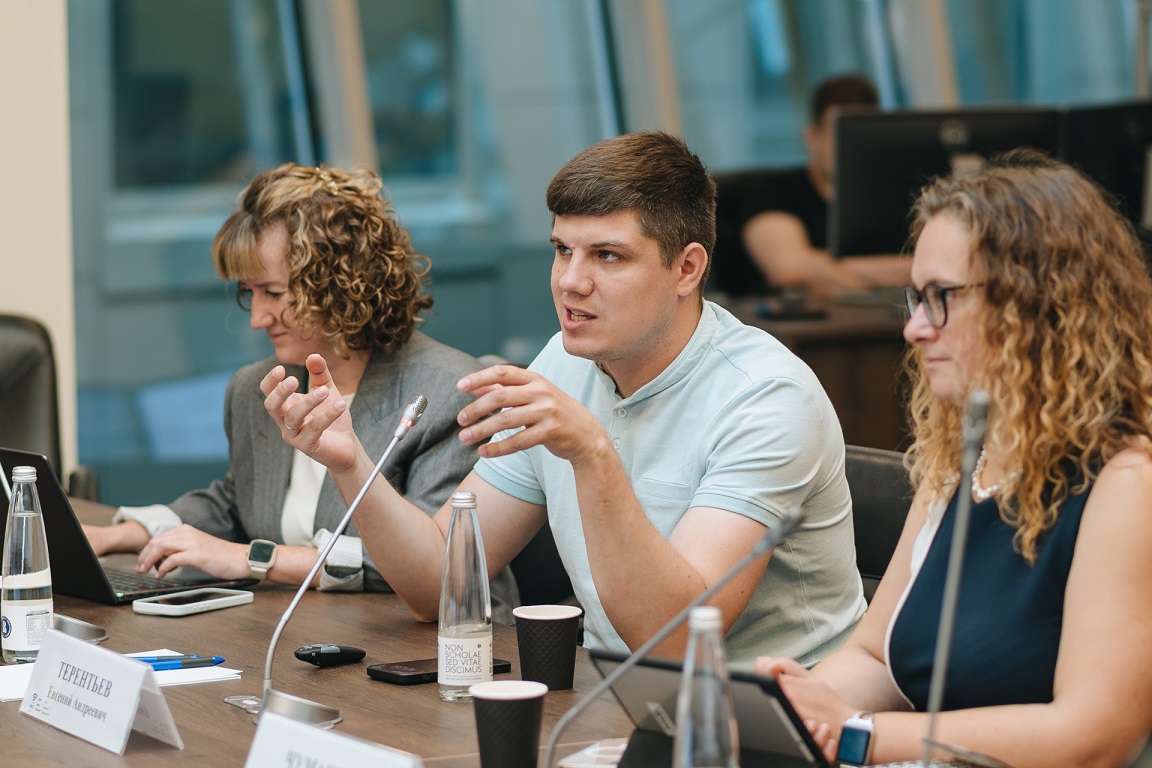
'Today, we are witnessing the emergence of numerous opportunities for human enhancement across various fields. However, there is currently no ongoing monitoring of these emerging opportunities, no established procedure for evaluating the effectiveness of existing tools, and a lack of systematic scientific knowledge on how to encourage people to use these new opportunities. Our strategic project revolves around addressing these three issues,' Evgeniy Terentev said.
The implementation of the strategic project has resulted in several outcomes: the first wave of monitoring the use of human enhancement tools has been completed, groundwork has been laid for the development of specific enhancement technologies, recommendations have been formulated to encourage the adoption of engineering and socio-humanitarian technologies by the public, a pool of recommendations for improving existing institutions has been produced, and strategies for student learning behaviour have been identified.
The Strategic Project 'Social Policy for Sustainable Development and Inclusive Economic Growth' was presented by its academic supervisor, Director of the HSE Institute for Social Policy Lilia Ovcharova, and coordinator Svetlana Biryukova. According to the speakers, the strategic project aims to propose a comprehensive model of sustainable social development tailored to the national context. It focuses on creating and promoting evidence-based social policy tools, implementing measures to enhance economic inclusivity, and formulating policies to foster social sustainability and improve the well-being of Russian citizens, particularly that of families.

The project implementation has produced significant results both at the university level and nationally. Lilia Ovcharova also highlighted the role of the strategic project's team as a centre of expertise supporting the development of state social policy measures.
Lilia Ovcharova emphasized the importance of attracting new researchers and new initiatives to the strategic project. This is especially important for creating new, in-demand expert analytical products and populating the digital bank of evidence-based social policy measures to support management decision-making, which is one of the key planned outcomes of the strategic project.
Learn more about this strategic project from Lilia Ovcharova's interview.
Presenting the Strategic Project 'Human Brain Resilience: Neurocognitive Technologies for Adaptation, Learning, Development and Rehabilitation in a Changing Environment,' Igor Sokolov, HSE Director for Research and Development and administrative manager of the strategic project, stressed the project team's priority of developing technologies that enhance human abilities, or 'augmented intelligence,' which place the individual in the centre and organise technologies around and for the individual. To achieve this, HSE University has been developing a distributed neurocognitive cluster that includes teams from all its campuses.
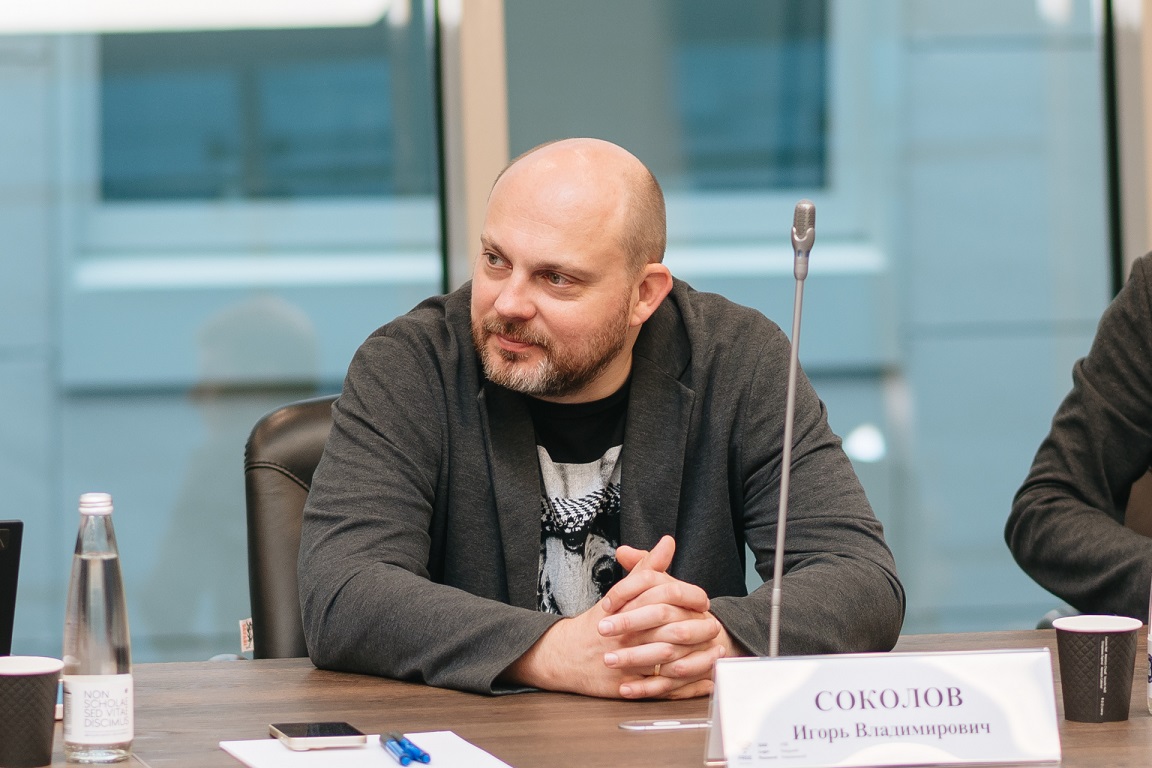
'In the foreseeable future, we believe we will be able to establish the first Centre for Assistive Technologies and Augmented Intelligence to help people solve problems that are otherwise very difficult or impossible to address without such technologies,' according to Igor Sokolov.
By 2030, plans include creating a prototype of a new-generation magnetoencephalograph to support import substitution in this field, developing next-generation neuroprostheses using brain-computer interfaces, creating prototype algorithms for a hearing diagnostic system based on machine learning and neuromodelling, and achieving several other applied results.
In conclusion, Igor Sokolov proposed convening a joint session to explore the possibilities of commercialising the applied results from all strategic projects, with the participation of the HSE Network Centre for Technology Transfer. Additionally, he emphasised the importance of popularising science and building competencies in science journalism to successfully promote HSE University's research in the field of cognitive neuroscience.
The Strategic Project 'National Centre of Science, Technology and Socio-Economic Foresight' was presented by Mikhail Goland, Director of the HSE Centre for Strategic Forecasting and administrative head of the project. According to Mikhail Goland, the primary goal of the strategic project is to establish a global centre of excellence in forecasting based at HSE University, and key objectives include developing a series of medium- and long-term forecasts to create a comprehensive future outlook, while identifying priorities for advancing science, technology, economic sectors, and social innovations. The project also aims to foster a scientific school of forecasting at the university, particularly by involving students, including doctoral students, in related projects, and promoting a culture of foresight studies in Russia and internationally.
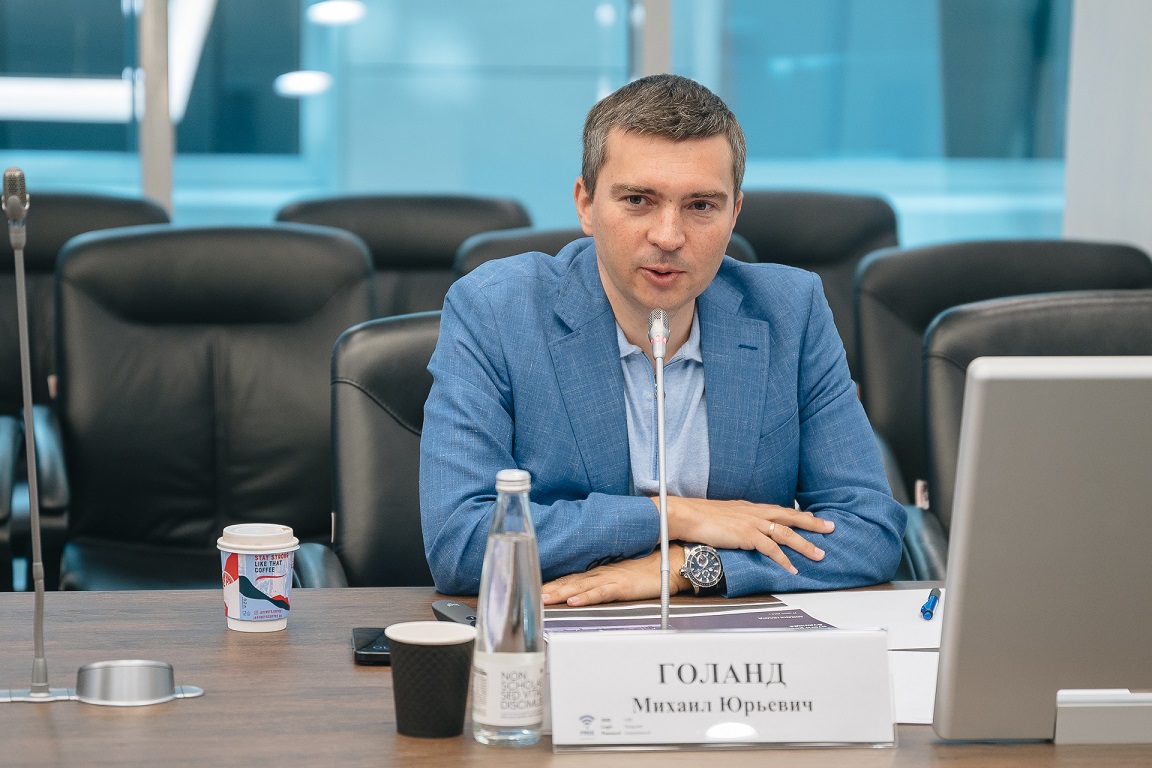
The most significant results of this strategic project to date include conducting a large-scale study on scenarios for Russia's socio-economic development until 2030, establishing a library of methods, models, and tools for scientific, technological, and socio-economic forecasting, producing a series of high-level monographs on scientific and technological forecasting and foresight, and launching several educational programmes in this field.
The new Strategic Project 'Human-Centred AI ,' initiated in 2024, was presented by Alexey Masyutin, Director of the HSE AI and Digital Science Institute, and Elena Kozhina, coordinator of this strategic project and projects in AI and digital science, and Deputy to Vice Rector Elena Odoevskaya.
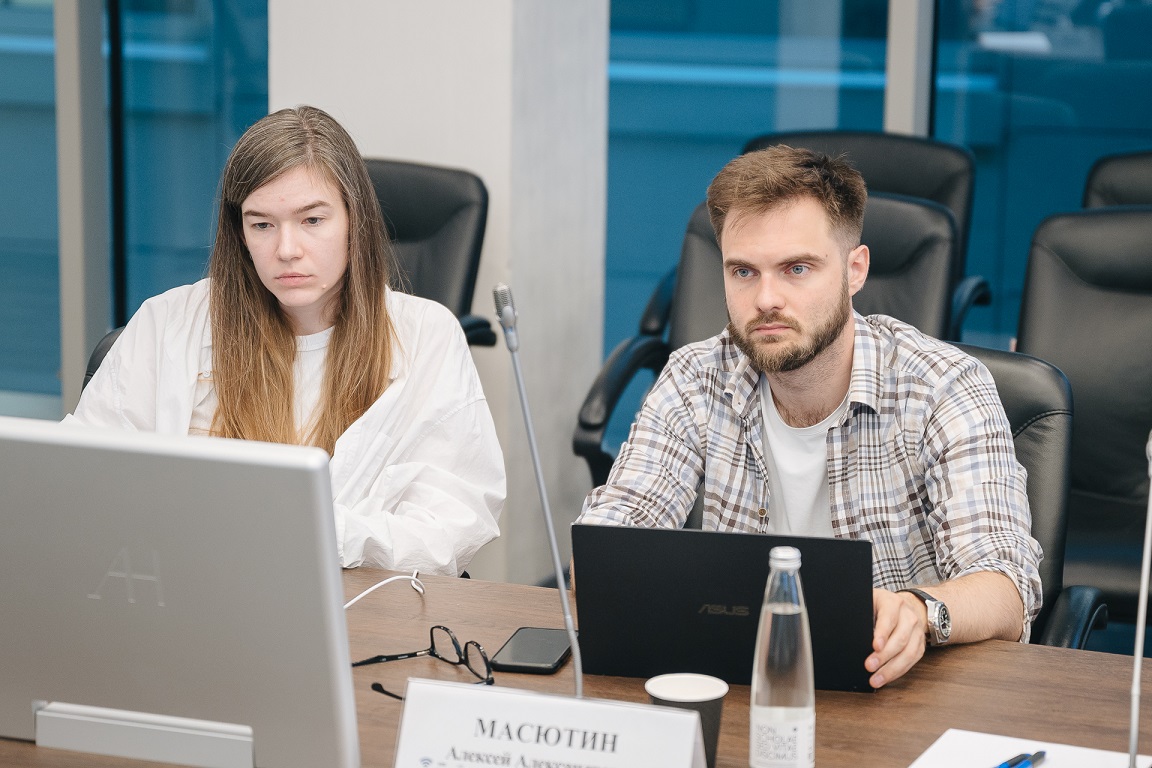
The main goal of the project is to develop a series of products using AI technologies that assist people in areas such as education, management, and medicine. Priorities for the coming years include the development of AI assistants to help HSE University's students and staff with routine tasks and to contribute to the educational process and applications to enhance the diagnostic capacity in spinal surgery and postoperative rehabilitation for the university’s partner healthcare providers. Another envisioned area of focus is market research to identify sectors where the introduction of artificial intelligence technologies holds the most promise.
The key advantage of the strategic project lies in the team's extensive experience in developing and implementing products across various industries, which they are prepared to share with other researchers at HSE University. In its turn, the strategic project is actively seeking new ideas for AI products that can enhance human life.
Ideas and suggestions
Throughout the session, participants asked questions about each project, discussed prospects for cooperation with various stakeholders, and offered ideas for project development. The attending researchers were interested in whether market assessments had been conducted for the projects, how product testing would be performed, how interdisciplinary teams could be recruited within HSE University, whether there were prospective customers and external inquiries, and how project team members were responding to them.
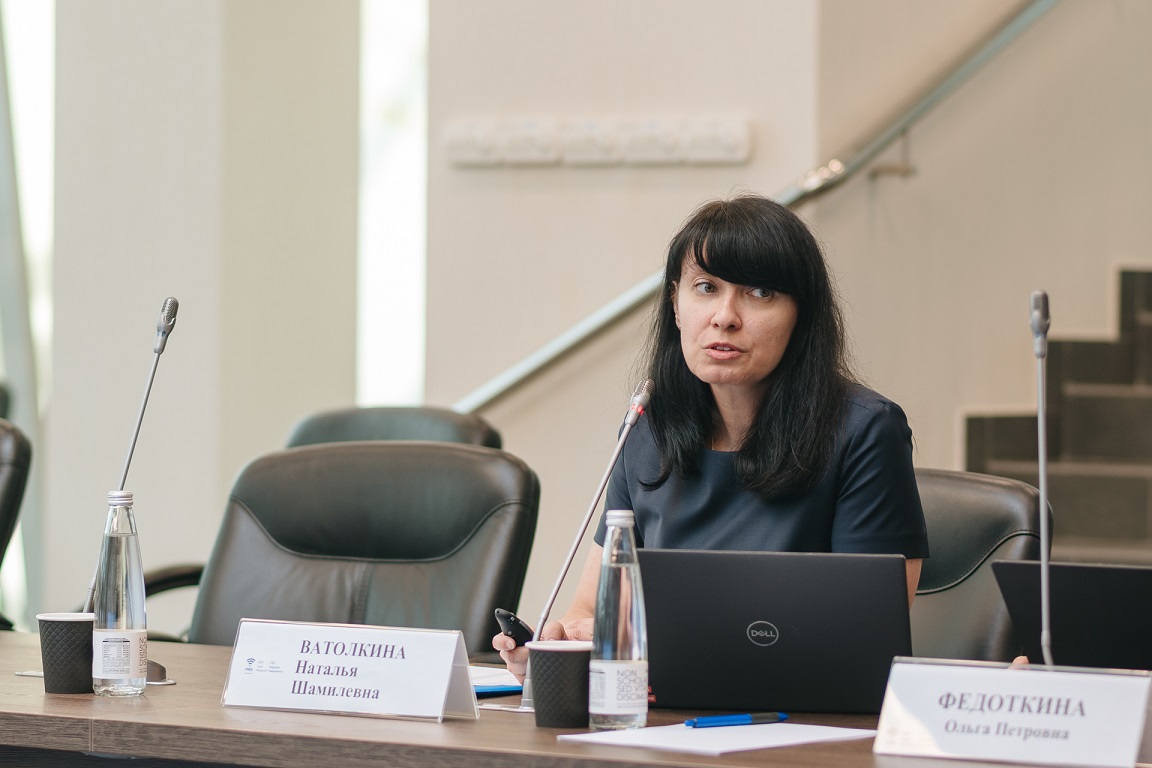
Wrapping up the session, Natalia Vatolkina invited participants who were not yet on the strategic project teams to share their ideas on the project content and ways to promote the results.
See also:
HSE Scientists Reveal What Drives Public Trust in Science
Researchers at HSE ISSEK have analysed the level of trust in scientific knowledge in Russian society and the factors shaping attitudes and perceptions. It was found that trust in science depends more on everyday experience, social expectations, and the perceived promises of science than on objective knowledge. The article has been published in Universe of Russia.
HSE Scientists Optimise Training of Generative Flow Networks
Researchers at the HSE Faculty of Computer Science have optimised the training method for generative flow neural networks to handle unstructured tasks, which could make the search for new drugs more efficient. The results of their work were presented at ICLR 2025, one of the world’s leading conferences on machine learning. The paper is available at Arxiv.org.
Neural Network Trained to Predict Crises in Russian Stock Market
Economists from HSE University have developed a neural network model that can predict the onset of a short-term stock market crisis with over 83% accuracy, one day in advance. The model performs well even on complex, imbalanced data and incorporates not only economic indicators but also investor sentiment. The paper by Tamara Teplova, Maksim Fayzulin, and Aleksei Kurkin from the Centre for Financial Research and Data Analytics at the HSE Faculty of Economic Sciences has been published in Socio-Economic Planning Sciences.
Larger Groups of Students Use AI More Effectively in Learning
Researchers at the Institute of Education and the Faculty of Economic Sciences at HSE University have studied what factors determine the success of student group projects when they are completed with the help of artificial intelligence (AI). Their findings suggest that, in addition to the knowledge level of the team members, the size of the group also plays a significant role—the larger it is, the more efficient the process becomes. The study was published in Innovations in Education and Teaching International.
Advancing Personalised Therapy for More Effective Cancer Treatment
Researchers from the International Laboratory of Microphysiological Systems at HSE University's Faculty of Biology and Biotechnology are developing methods to reduce tumour cell resistance to drugs and to create more effective, personalised cancer treatments. In this interview with the HSE News Service, Diana Maltseva, Head of the Laboratory, talks about their work.
Master’s Students of HSE, University of Campinas, and Tsinghua University Publish Joint Student Research Collection
Master’s students of the HSE ISSEK programme ‘Science, Technology and Innovation Management and Policy’ have released a joint research collection with the University of Campinas (Brazil) and Tsinghua University (China) titled ‘Being Innovative or Being on the Safe Side—Managing the Risk of Failure.’ The authors explore how organisations perceive risks and embrace innovation within different cultural contexts.
‘A Turn Away from Stereotypes’: Moscow Hosts ‘Researching the Deaf Community’ Conference
On October 17–19, 2025, the third annual interdisciplinary conference ‘Researching the Deaf Community 2025: on the Periphery of Attention’ took place at GES-2 House of Culture in Moscow. The event was organised with the participation of the HSE International Laboratory for Social Integration Research. HSE University Vice Rector Irina Martusevich addressed attendees at the opening ceremony.
Exploring the Mind: HSE Scientists Discuss Cognitive Technologies of the Future
Why we make irrational decisions, how the brain responds to fakes, and whether neural networks are capable of thinking—these were the topics discussed by early-career scientists of HSE University during the NAUKA 0+ science festival. The event brought together students and experts from various fields, united by a common goal—to deepen their understanding of the human brain and cognitive technologies.
HSE Researchers Assess Creative Industry Losses from Use of GenAI
Speaking at the IPQuorum.Music forum on October 15, Leonid Gokhberg, HSE First Vice Rector, and Daniil Kudrin, an expert at the Centre for Industry and Corporate Projects of HSE ISSEK, presented the findings of the first study in Russia on the economic impact of GenAI on creative professions. The analysis shows that creators’ potential losses could reach one trillion roubles by 2030.
International Dialogue on Urban Development: Dynamic Urbanism and Green Infrastructure
In September 2025, the HSE Faculty of Urban and Regional Development (FURD) hosted a delegation of leading scholars and urban development experts from China. Two seminars were held at the Shukhov Lab with the participation of Chinese colleagues: the first focused on green infrastructure, while the second explored the theme of dynamic urbanism. In addition, a meeting between the Chinese delegation and representatives of FURD took place at the university’s main building on Pokrovsky Bulvar. The participants discussed opportunities for expanding cooperation between universities and research centres.


